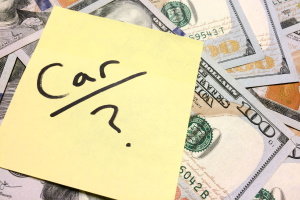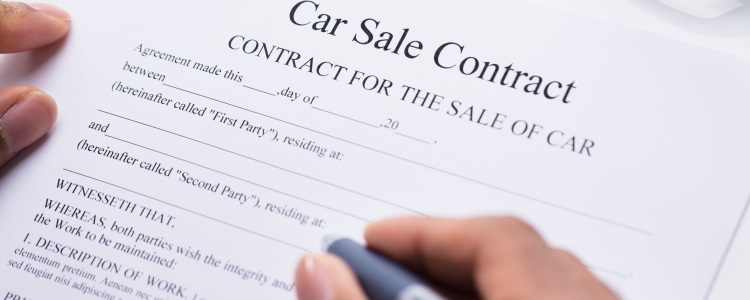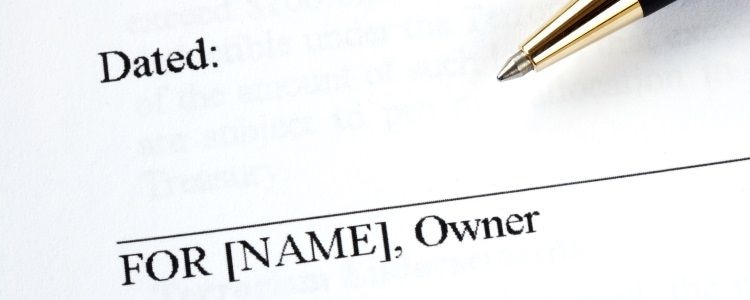If you’ve got your sights on a car without a title, it’s typically not a good idea to go through with the purchase – to officially buy a car, you need the title. Here’s what you need to know.

Buying a Car Without a Title
Car Buying and Vehicle Titles
A vehicle’s title is a document that proves ownership of a car. If you buy a vehicle without a title, there’s no documentation that proves you’re the rightful owner. If you pay someone cash for a car without signing a title, technically, you’re not the owner at all.
Buying a car without a title and failing to register it in your name is called title-jumping, and it’s illegal. You’ve “jumped” from one owner to the next and skipped over the step of officially registering the car in your name, which you need a title to do.
Problems that can arise from buying a car without a title include:
- Legal issues, since title-jumping is illegal in every state
- Difficulty registering the car in your name and getting tags
- Issues getting auto insurance coverage
- Not knowing the actual history of the vehicle or if the title is branded
- Not knowing if the vehicle has a lien
- Issues with selling the car later on
ACE Tip: To sum up the idea of buying a car without a title: simply shop elsewhere. If the seller is reluctant to discuss the reasons why they don’t have the title, then it’s probably a good idea to walk away to avoid future trouble and hassle for yourself.
Seller Can’t Find the Title
 If the seller simply doesn’t have a title because it was lost or damaged, they can request a duplicate title at their local Department of Motor Vehicles or Secretary of State.
If the seller simply doesn’t have a title because it was lost or damaged, they can request a duplicate title at their local Department of Motor Vehicles or Secretary of State.
If the vehicle still has a loan on it and the car is registered in a title-holding state (41 are), then it’s likely the lender has the title, and once the loan is paid off the lender releases the lien and can send the title.
There are nine non-title-holding states: Arizona, Kentucky, Maryland, Michigan, Minnesota, New York, Oklahoma, South Dakota, and Wisconsin. If the vehicle is registered in one of those states, the seller should have the title in their possession regardless of whether or not there’s a loan on the car.
Buying From a Private Seller vs. Dealership
There’s always a risk of buying a lemon from any seller, either private or a franchised dealership. Vehicles can be fickle and sometimes what looks like a great deal could yield a headache later.
However, there’s arguably more of a risk buying from a private seller vs. a dealership, since most dealers at the very least inspect and prep a car for sale. Private sellers may not do much more than clean out their personal belongings before they sell them to you. The average person may not be as knowledgeable as a dealer or certified mechanic.
Before you buy a car from anyone, it’s a good idea to look at its vehicle history report. It’s also recommended that you schedule a third-party inspection from a certified mechanic to see if there are any underlying issues with the car. If the seller doesn’t show you the title or there seem to be holes in the vehicle’s history, it could mean something fishy and should be a sign to walk away.
Start Car Shopping Today
Deciding on the right vehicle can take hours of research, and finding the right seller or dealership can be another task itself. And if you have less than perfect credit, it could mean even more hassle if you need vehicle financing. Here at Auto Credit Express, we want to make your car shopping experience a little easier by finding your dealer connections for you.
All you have to do is fill out our free auto loan request form and we’ll look for a special finance dealership in your local area that’s able to assist with credit challenges. Don’t drive around hoping to run into a dealer that works for your credit situation – we’ll handle the work of locating a dealership for you so you can focus on the rest of the details. Get started now!

Senior Auto Financing Editor
Suggested Posts For You
Receive Free Updates
Get the latest credit tips, resources and advice delivered straight to your inbox.













